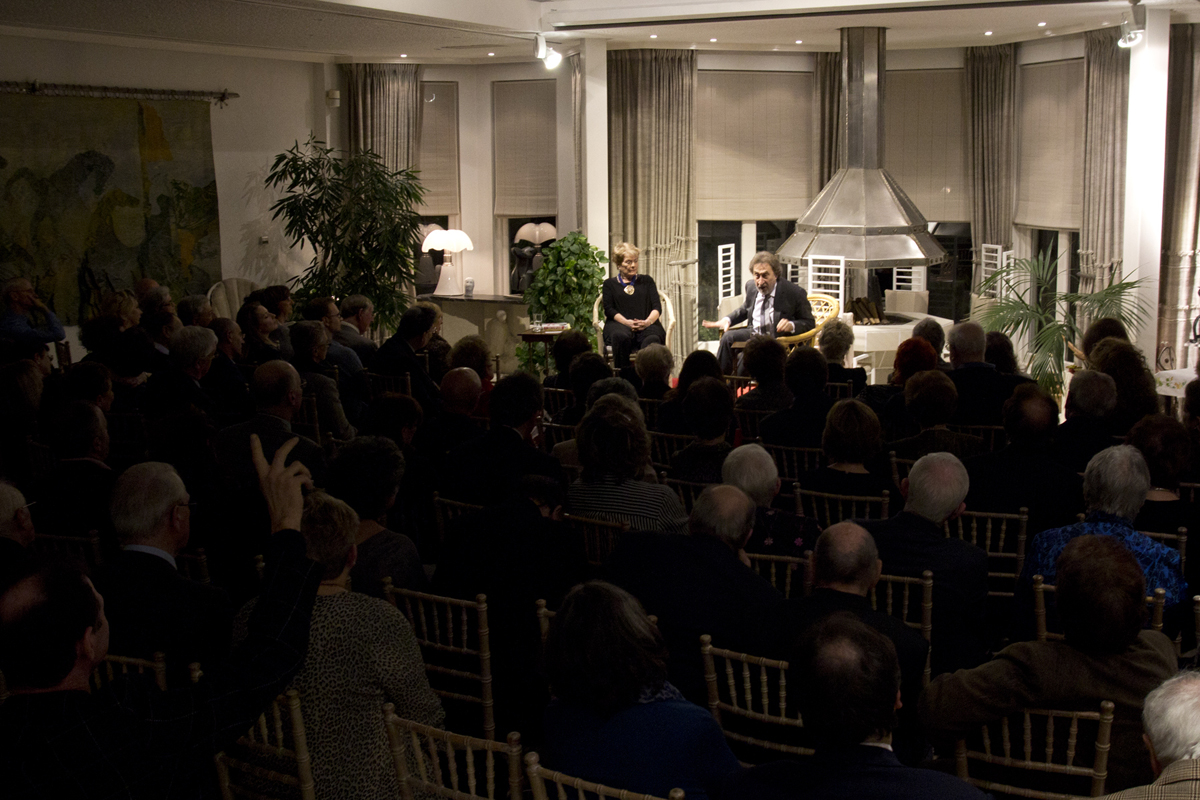
Jews have long lived with the idea that the Holocaust is incomprehensible in large numbers and that examination of individual stories provides greater understanding of the whole. Now there's a trend for understanding what happened in Germany through stories of individuals who supported or opposed the events at the time; think of Zone of Influence by Martin Amis, for example, a love story set in the German officers' quarters at an extermination camp. Taken at Midnight is the story of lawyer Hans Litten, one of many political prisoners bundled into "protective custody" as the Nazis consolidated their power after the Reichstag fire. Litten’s "crime" was to have called Hitler as a witness in the trial of four stormtroopers accused of murder and to have exposed the denied link between the Nazi party and SA (Sturmabteilung/Brownshirts) violence.
The dramatic device in Mark Hayhurst’s play is to see all the events through the five-year campaign of Litten’s mother Irmgard (Penelope Wilton) to get him released. Played out on an austere grey set by Robert Jones that echoes brutalist Nazi architecture, with stark lightning by Tim Mitchell and nerve-scraping music by Matthew Scott to match, we see how a mother's love and persistence attempts to save her son.
The play intercuts between Litten’s various prison camps and Irmgard’s increasingly frustrated attempts to find out what’s happening to her son. Exposition in the early scenes means the drama is slow to get going but it soon hits its stride, especially in the set pieces between Irmgard and the cool and oily Gestapo officer Conrad (John Light), where Wilton’s ability to deliver the reasonable voice of the silent majority in the face of implacable bureaucracy strikes hardest.
There's also a moving scene in Dachau between Irmgard and Hans (a redoubtable Martin Hutson) leading up to the climax of the play.Leaving the devasting court room critique of Hitler almost to the very end brings home the bravery of all those who opposed his will in any way, having seen what befell just one man and his two cell-mates, Carl von Ossietzsky and Erich Muehsam (Mike Grady and Pip Donaghy adding gallows humour).
Jonathan Church directs a fine cast with poised restraint. Everyone is chillingly reticent and this serves to highlight the contrast between words and actions, notably those of Conrad who fobs off all enquiries and the ineffectual British Lord Allen (David Yelland) visiting to enquire after the treatment of political prisoners.
We do lose track of Hans's father (Allan Corduner), a baptised Jew and holder of the Iron Cross First Class who supported Irmgard admirably but seems subsequently to have left his Christian wife, perhaps for her own sake, though that is not explicit. But it’s not the fate of the Jews that matters here, even though Litten is counted as Jewish by the Nazis.
While we learn little more about the banality of evil from this play, it's a timely reminder of the honest intentions of the many Germans who opposed Hitler in 1930 and who subsequently deserve to be named as victims of the Holocaust. And it’s a timely warning to us to heed those sounding today’s warning sirens.
By Judi Herman
Taken at Midnight runs until Saturday 14 March. 7.30pm (also 3pm Wed/Sat). £15-£59.50. Theatre Royal Haymarket, SW1Y 4HT; 020 7930 8800. www.trh.co.uk












